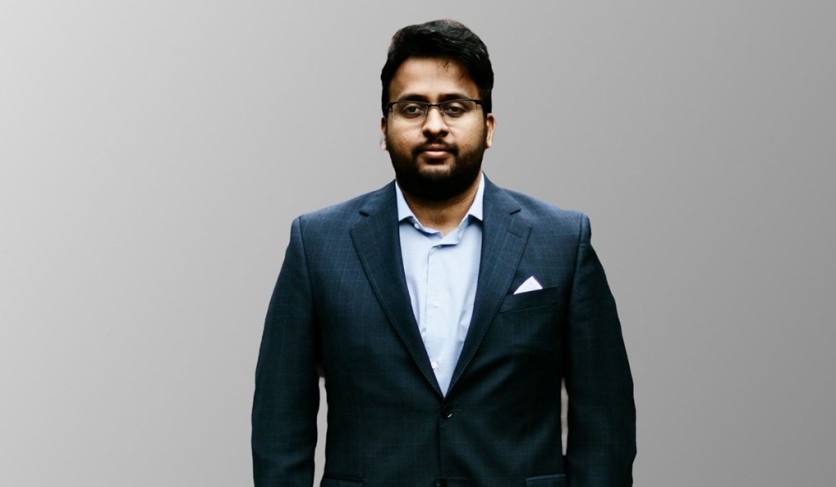
As electronic devices become central to everyday life, the need for reliable performance without disruptions has grown significantly. Electromagnetic interference (EMI) remains a common issue, causing electronic systems to malfunction, slow down, or fail entirely. This challenge is particularly critical for industries relying on advanced technologies like artificial intelligence (AI), retail systems, and data centers.
Naga Suryadevara, an expert in electromagnetic compatibility (EMC), has dedicated their career to solving these problems. Their work focuses on making hardware systems dependable by reducing interference and ensuring smooth functionality.
"EMI is more than a technical inconvenience; it's a critical obstacle in scaling new technologies," Suryadevara has said. Their approach to managing interference has enabled technologies to meet performance expectations and adapt to global demands.
Transforming Retail with Reliable Hardware
One of Suryadevara's most notable accomplishments is their contribution to Amazon's Just Walk Out (JWO) technology, which powers cashier-less stores. This AI-driven system allows customers to shop and leave without stopping to pay at a checkout counter. The technology relies on a complex network of hundreds of sensors, cameras, and edge computing devices working in perfect harmony—a feat that would be impossible without robust EMC solutions.
Suryadevara significantly contributed to JWO hardware design by reducing electromagnetic and electrostatic interference. They developed specialized shielding for sensitive components and adaptive power management systems to minimize emissions while ensuring optimal performance, enabling reliable operation in busy retail environments.
They developed hardware protocols that complied with global EMI and ESD standards, which was crucial for the large-scale JWO deployment. Traditional EMC solutions often struggled in diverse environments, but these advancements improved system performance and enabled efficient scaling to over 100 stores.
Improving Data Center Performance
As the demand for data-intensive applications grows, data centers face increased pressure to maintain efficiency while supporting high-performance computing. These facilities often encounter challenges related to overheating and electromagnetic interference, which can hinder operations.
Suryadevara has addressed these issues through their work with the Open Compute Project (OCP), focusing on creating open-source hardware designs that reduce interference and optimize energy use. Their efforts have been particularly impactful in advancing power distribution and immersion cooling technologies.
Immersion cooling, a system where hardware components are submerged in non-conductive liquids, is one example of their contributions. This method addresses overheating and interference simultaneously, enabling data centers to run powerful AI systems more efficiently. Suryadevara's work has helped improve both performance and environmental impact by prioritizing sustainable and scalable solutions.
Establishing Global Standards
Beyond their technical achievements, Suryadevara has played an essential role in shaping global standards for electromagnetic compatibility. As a member of the ANSI SC4 Working Group, they contribute to developing C63.10 standards, which ensure electronic systems meet reliability and safety benchmarks.
These standards are fundamental as the global market for EMC compliance continues to grow. In 2023, the market was valued at $7.8 billion, and projections are that it will reach $8.4 billion by 2026. Suryadevara's involvement in developing these standards has helped ensure that emerging technologies can perform consistently across different regions.
"Innovation happens within boundaries," Suryadevara has noted. "Standards provide the foundation for reliability, allowing engineers to focus on solving complex problems." Their contributions to standardization have reinforced the importance of creating frameworks that balance innovation with operational stability.
Preparing for Technological Growth
The increasing complexity of modern technology has amplified the challenges posed by EMI. Trends like the rise of 5G networks and the proliferation of connected devices require innovative solutions to manage interference while maintaining system reliability.
Suryadevara's work emphasizes collaboration and adaptability. Their involvement with OCP highlights the value of open-source platforms, which allow companies to share knowledge and develop hardware systems that can evolve alongside technological advancements.
In addition, Suryadevara has been a proponent of sustainable practices, such as designing hardware cooling systems that reduce energy consumption. These solutions address current challenges and prepare industries for a future where environmental considerations play a larger role in technological development.
Balancing Innovation and Reliability
Suryadevara's impact extends beyond technical innovation. They have fundamentally changed how industries approach hardware reliability in the age of digital transformation. Their work on Amazon's JWO hardware and their leadership in the OCP has provided practical solutions for industries grappling with complex hardware requirements.
"Every reliable system is the result of collaboration and careful planning," Suryadevara has stated. This philosophy is evident in their ability to address interference problems and contribute to global standards, ensuring that technologies can scale effectively while remaining reliable.
Context for EMC in Today's Industries
The role of EMC has become increasingly important as industries like AI, telecommunications, and data storage expand. According to a 2024 report, the demand for interference-mitigation solutions has risen by 15 percent annually, demonstrating the critical need for advancements in this area.
Suryadevara's contributions align with these trends. They provide solutions that improve system performance while addressing sustainability and compliance challenges. Their work highlights the importance of technical precision and collaboration in overcoming modern engineering problems.
By addressing immediate and long-term challenges, Suryadevara is helping industries adopt smarter, more efficient, and more reliable technologies. Their contributions are shaping how hardware systems are designed and implemented, ensuring that technological progress continues to meet the demands of an increasingly connected world.
ⓒ 2026 TECHTIMES.com All rights reserved. Do not reproduce without permission.




